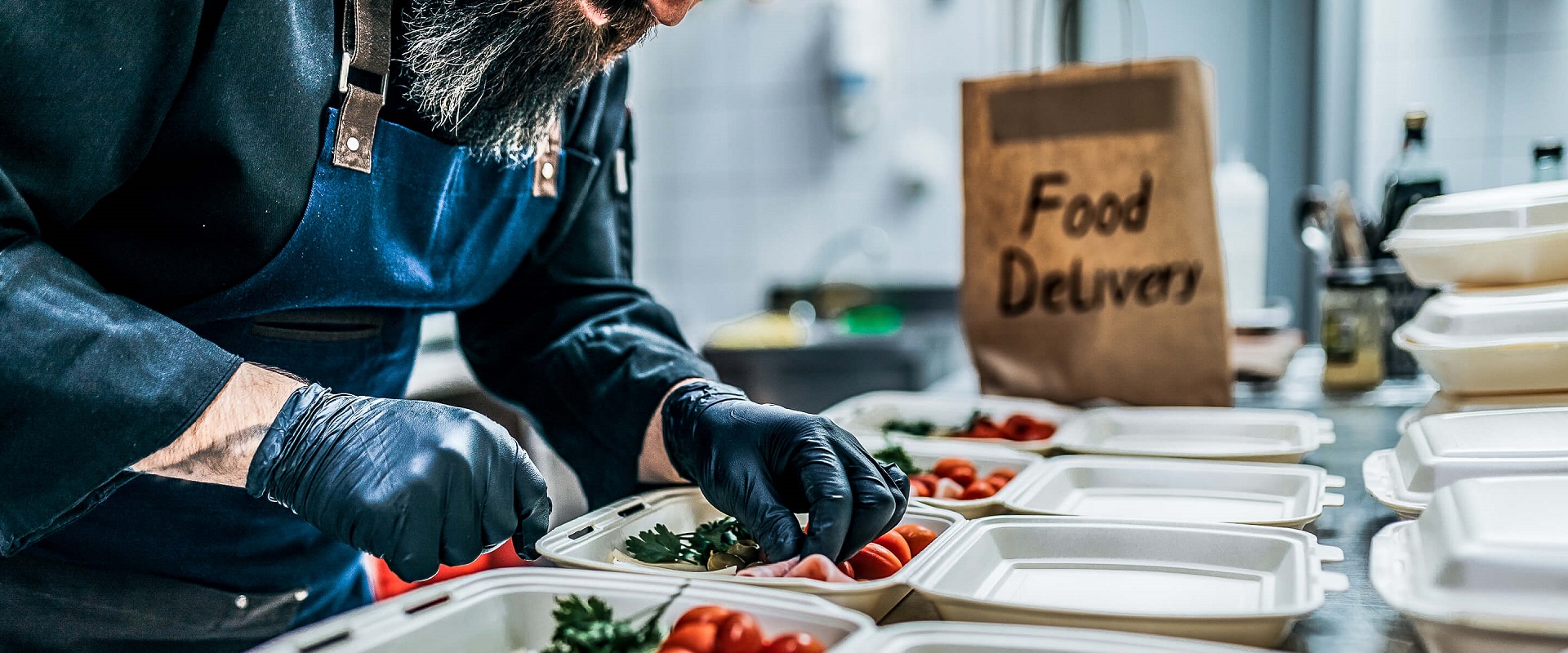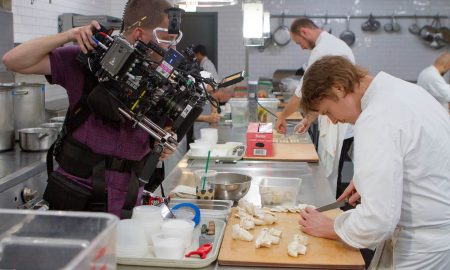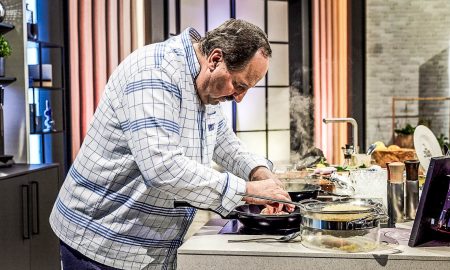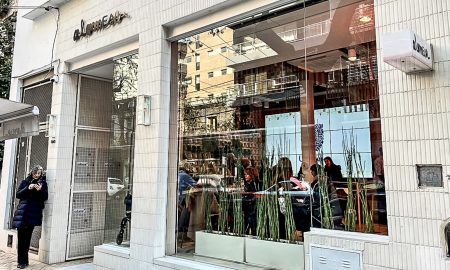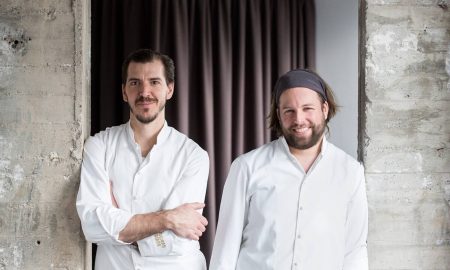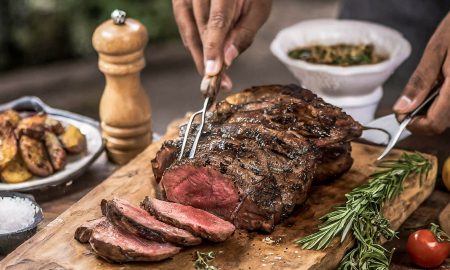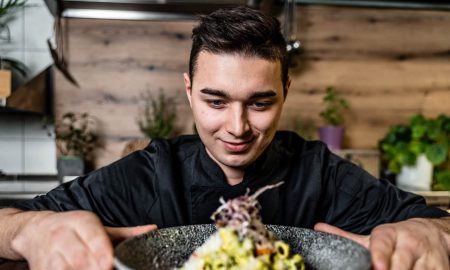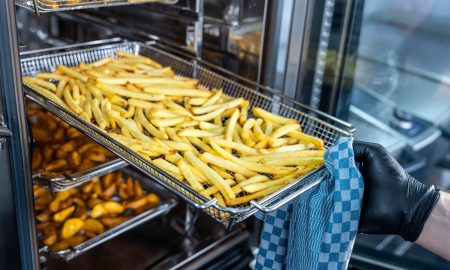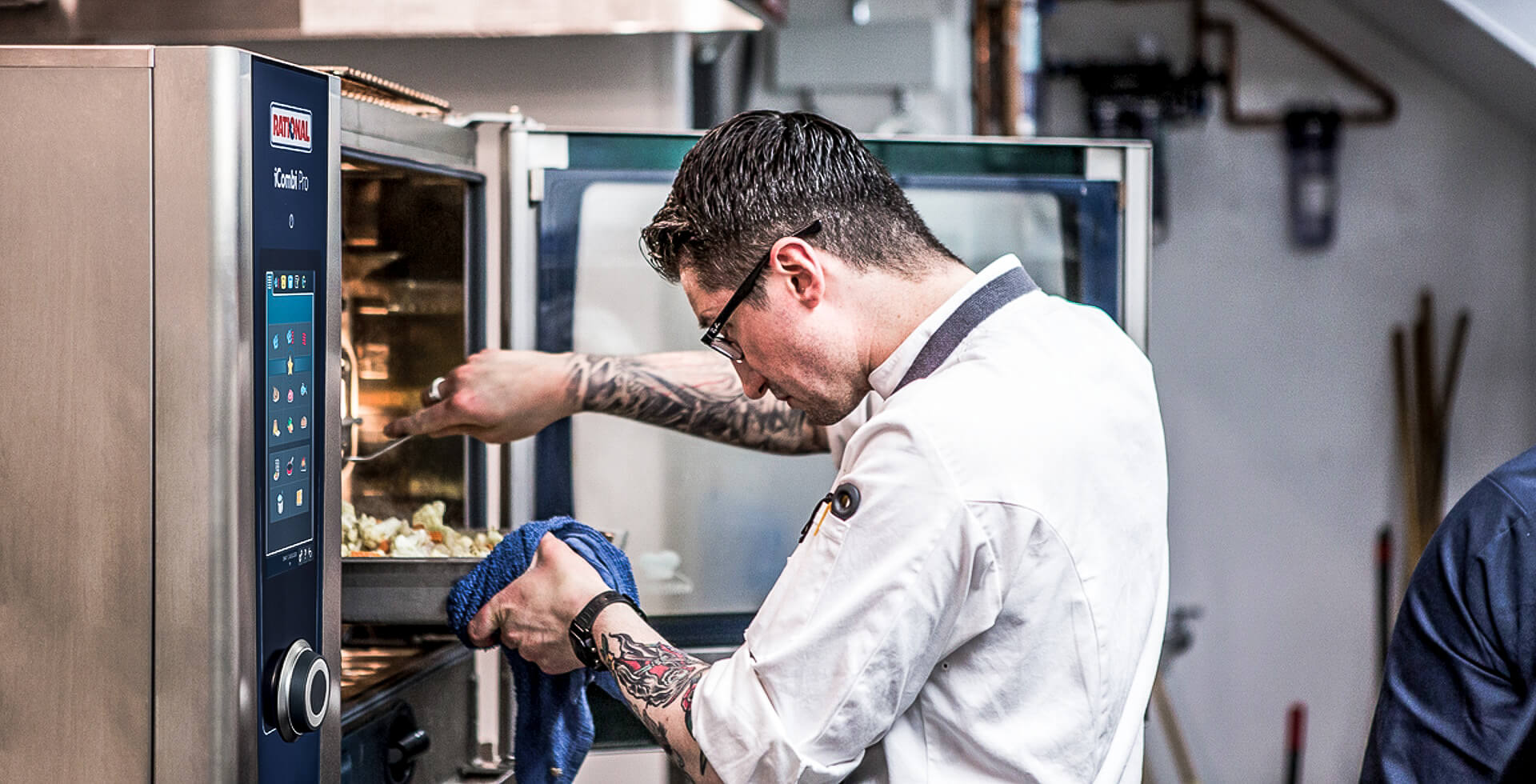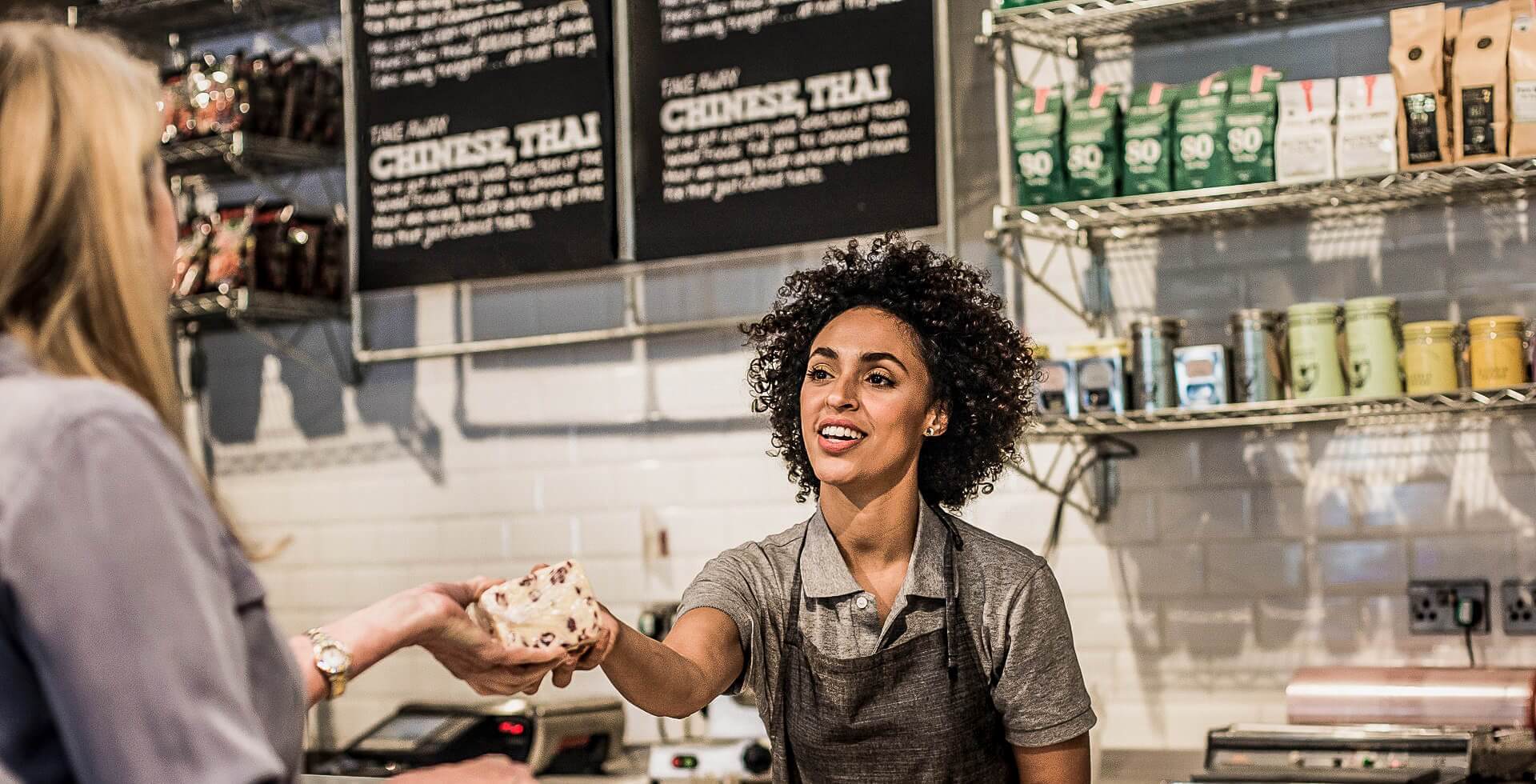The evolution of the ghost kitchen was the topic under discussion in the eighth TrendTalk webinar from Rational on July 6, 2022. Michael Jones, editorial director of Progressive Content and FCSI’s Foodservice Consultant magazine spoke to Melina Michna, co-Founder of Munich based start-up nourisha; Daniel Gantenberg, managing director of the German restaurant chain Enchilada Gruppe; and Simele Shange of Jozi Cloud Kitchens in South Africa; before introducing Rational’s Stephan Leuschner, who looked at how hybrid models might help to increase the rentability of ghost kitchens.
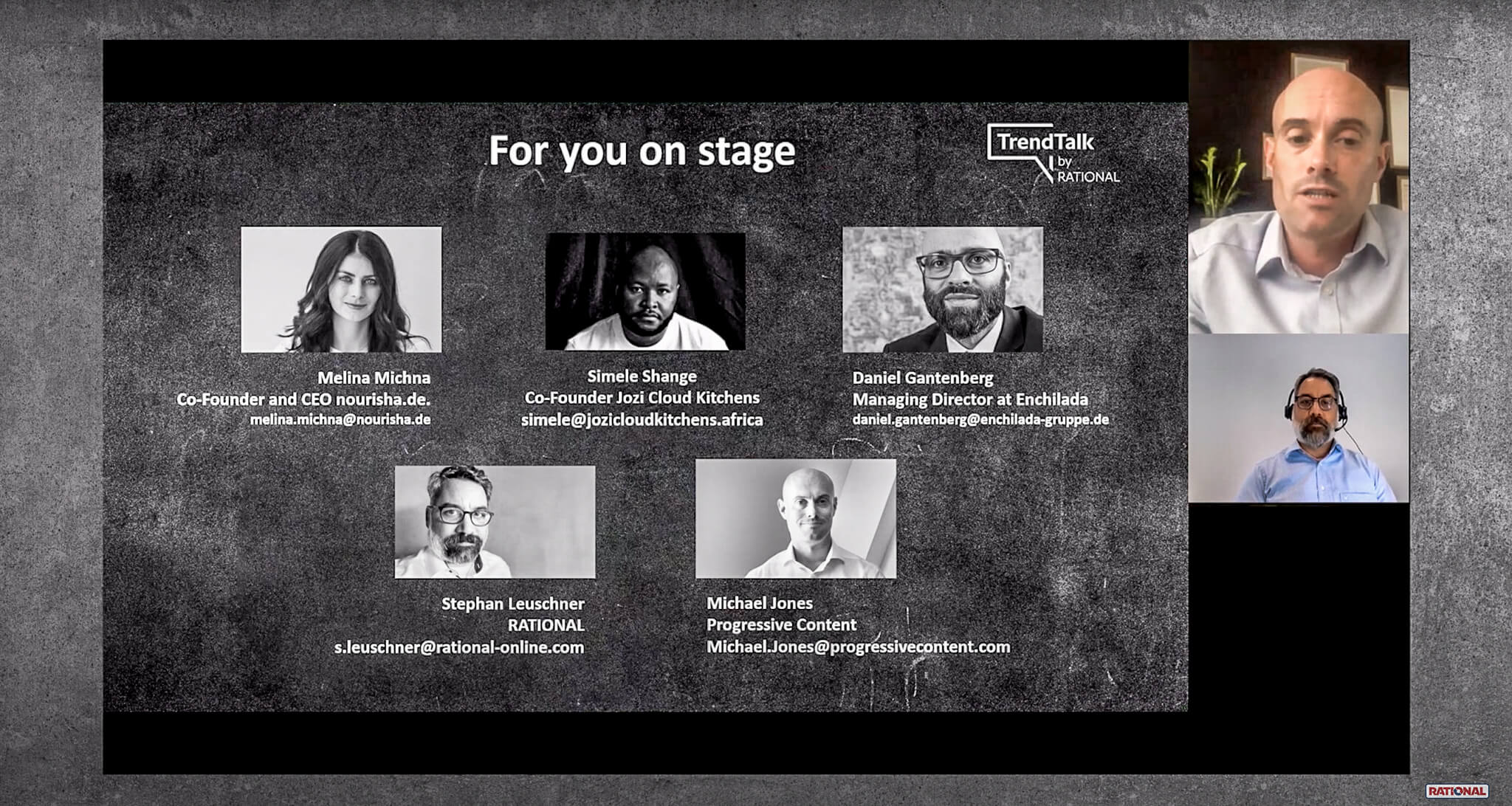
Image: RATIONAL AG
Michael first spoke to Munich-based Michna about her experience of working with entrepreneurs and high-end brands before she and her business partner Nina Eglinsky set up nourisha in August 2021.
Nourisha: healthy dishes freshly prepared and delivered
With a desire to embrace a healthier lifestyle Michna found buying fresh food to prepare and cook three meals a day stressful, even when she was on vacation, let alone when she was back at her full-time job.
Recognizing a gap in the market for ready-made healthy meals she found a partner with foodservice experience to complement her business qualifications and together they launched nourisha, a company delivering nutritionally designed super meals that take away the stress of eating healthily.
Sieh dir diesen Beitrag auf Instagram an
Asked why she decided on an e-commerce only, ghost kitchen concept she said: “Accessibility was at the forefront. I was frustrated with the options I could find in Munich. Takeout food is typically pizzas and kebabs. I knew there were healthy food places in Munich, but I couldn’t access them during my lunch break. There was a gap and I wanted to close that gap. Get the food to come to me.”
The pair have poured their savings into the project and as they are working without an investor they could not afford much equipment. “We couldn’t afford a [brand new] Rational oven. We didn’t know much about the foodservice business but noticed everyone seems to have them. We hired a car and drove from Munich to Hamburg – nearly 800 km – to buy one from a cooking school that had closed down due to the pandemic,” Michna recalled. One of the many adventures they have had in starting up this business.
Sieh dir diesen Beitrag auf Instagram an
Location search – a major challenge for the young ghost kitchen startup
They have just moved into new premises on the outskirts of Munich, and this will hopefully prove a game changer for the fledgling business. “Being e-commerce, we don’t need a prime location (at a premium rent) but finding a location with everything a foodservice business needs has been the hardest part. I never thought that when I set up the company that this would be the thing that kept me awake at night,” Michna added.
Michna credits the new premises with enabling the concept to prove its profitability and from here the challenge will be to find other locations where they can copy and paste what they are doing right now. “Local delivery, for us, is a lot more sustainable because we can concentrate on a circular economy, collecting the ice packs and food containers,” she said. Michna is also positive that the growing awareness of the connection between a healthy diet and longevity will only be good for business.
Enchilada Group: Brick and mortar plus a delivery option
Jones then introduced Daniel Gantenberg, one of the team behind Enchilada Gruppe in Germany, which has enjoyed success in recent years in its brick-and-mortar operations but is now also extending its reach into the ghost kitchen market. With 74 successful outlets across Germany, why is the group dipping its toes into the food delivery and ghost kitchen world?
“Delivery grew in Germany during the pandemic,” said Gantenberg. “During the lockdowns it was the only way we could sell our product. However, visiting a restaurant and delivery are completely different.” That is why Enchilada Gruppe want to develop its own ghost kitchen platform and run the delivery separate to the restaurants so they can deliver the best experience to the customer.”
Sieh dir diesen Beitrag auf Instagram an
Gantenberg admits that without the pandemic it is unlikely Enchilada Gruppe’s restaurants would be offering delivery. However, he does see many benefits of ghost kitchens. “We can open restaurants with much lower cost,” he said. “We can test our brands in a city where we don’t have a restaurant and see if it works. We build our kitchens in a modular way with the Rational and cooling equipment so if it doesn’t work in one location it can be transferred to another. This approach also ensures our guests experience consistently high quality.”
Roll out for Ghost kitchen platform planned for 2023
After a test run in a major German city Echilada Gruppe plan to start rolling out its ghost kitchen platform from early 2023. This will offer access to all the group’s concepts in what Daniel describes as a “food court”. The concept has scalability as the ghost kitchens will take on the delivery side leaving the restaurants to concentrate on serving guests ‘in-house’.
Like many hospitality businesses Enchilada Gruppe is experiencing a shortage of skilled workers. They are keeping an eye on developments in automation going forward without compromising what makes them special. Rational equipment helps with this. “People would rather get their food and drink automatically than have it tasting different every time,” explained Gantenberg.
Providing the optimum experience is another reason for Enchilada Gruppe’s move to a ghost kitchen platform. “At the moment we can only guarantee the quality of the food when it leaves our restaurant,” explained Gantenberg. “If it doesn’t arrive in good condition the customer will always blame the restaurant. Having its own riders and ghost kitchens takes back that control. “This is at the expense of the delivery radius,” he added. “Keeping it small is the only way to guarantee the quality to the door.”
Jozi Cloud Kitchens: Understanding profitability
The next guest Simele Shange first appeared on TrendTalk 3 when he and his wife Kalipha talked about their year-old company Jozi Cloud kitchens in South Africa. Since then the company has gone from strength to strength and Shange spoke to Jones about how they have grown and evolved over the last year.
“In the first year we were learning about how ghost kitchens work and understanding the profitability of ghost kitchens and the best way to run them,” he said. “The second year has been about the role they play and redefining how people view ghost kitchens and interact with them.” Shange is adamant that ghost kitchens are not going anywhere now that lockdowns are a thing of the past and people are going out again.
Sieh dir diesen Beitrag auf Instagram an
As for positive feedback none of the brands in Jozi Cloud Kitchens has a rating lower than 4.5 on Uber Eats. “Central to ghost kitchen success is that the food is good, and it is delivered well,” he explained. “We have launched our new app, Jozi Feast, which enables people to order from 16 different restaurants in one place. That has been well received.”
Shange explained how the company is now more considered in the way it selects tenants for its spaces, developing a vetting process to eliminate too much churn, which allows for more stability. They are also developing sit down areas at their locations.
Know your leverage
The best business advice they received was to recognise that they have leverage. “In this economy not many businesses can take amount of space we can take with low risk. Instead of us applying to landlords, we can ask what they are going to do for us,” said Shange. “We have leverage and it’s about us using it to put Jozi Cloud Kitchens in the best possible position.”
Automation and robotics are being introduced, as Shange said: “Our robot is called Ralph. Initially we thought we’d take the robot for two weeks, get some great social media stuff, marketing off it. Now it moves packages from our kitchen, and we realized that we could really use this. It’s not just a gimmick but a practical solution to working more efficiently.”
Sieh dir diesen Beitrag auf Instagram an
The next chapter for Jozi Cloud Kitchens involves going into large retail spaces in the big shopping malls. “We’re trying to bring brands that people will be excited about. For us it’s more than growth it’s about giving exposure to these small brands. We are happy for them to grow and branch out,” Shange stated. “We want ghost kitchens to be more visible and show they are an integral part of the restaurant industry.”
Dealing with the labor issue
The final guest was Stephan Leuschner, Rational’s ghost kitchen expert. Food delivery, online ordering and ghost kitchens have become such an integral part of everyday life in most countries. Is this business model here to stay? Although the pandemic played a role in accelerating it (restaurants had no other way of doing business during lockdown), Leuschner notes there are other reasons for its success and popularity.
“There is a constant shortage of qualified labor,” he said. “Everything has to be streamlined as tasks have to be performed by people with lesser skill levels, using the Rational iCombi Pro for example. There will be less creative, artisanal cooking. As a former chef this is a little disappointing, but from a business point of view it is also exciting.”

Image: RATIONAL
With customers enjoying the convenience of delivery, whether at home or in the office, ghost kitchens facilitate the production at volume required by this model. “I see more retail operators and caterers coming into the delivery business in future,” Leuschner predicted. “Retailers have the benefit of existing infrastructure and customer flow, for example Walmart in the US and Canada have changed their sites and partnered with delivery platforms. Many catering sites are under used at certain times of the day, especially now working habits have changed away from office work. They could easily operate kitchens for food delivery or rent out space for kitchen as a service [KaaS] to support ghost kitchens at peak times.”
Tracking the trends: future ghost kitchen models
The TrendTalk then concluded with a group discussion. Jones asked whether the rate of growth seen in the last three years would continue. “There is so much money in the business now I think we’ll see all scenarios in the future,” said Gantenberg
Shange agreed there would be some market adjustments. “The cream will rise to the top,” he said. “From a South African perspective there is a lot of room for growth in ghost kitchens. We haven’t scratched the surface of what it could be.”
Remembering the operators who invested vast amounts into projects that never took off Leuschner pointed out: “It’s not just about speed or money. It’s about having the right concept and being authentic.”
All the panellists agreed that change was good. “I think it’s super important,” said Michna. “Because of the shortage of employees in hospitality automating processes will help.”
“We should embrace disruption,” said Leuschner “We have to adapt to circumstances and understand the demands of today and tomorrow.”
For Shange “Change brings opportunity, without it we just have the same guys doing the same old thing.”
Further details:
The next TrendTalk webinar will take place on Wednesday September 14, 2022.
Free Download: Ghost Kitchen Playbook
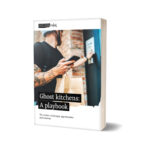
Download your Ghost Kitchen Playbook for free now.


